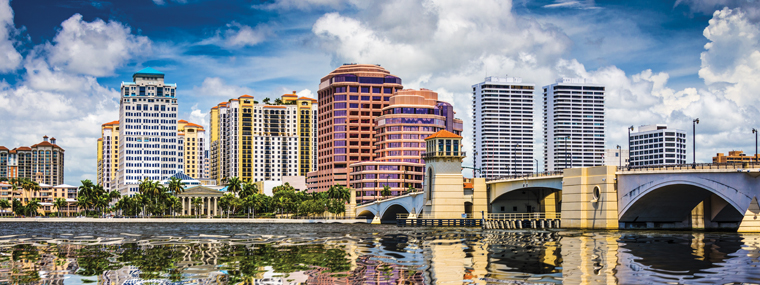
Rembaum’s Association Roundup
Tree Trimming and Tree Removal
What Every Florida Homeowner Needs To Know!
By Jeffrey A. Rembaum, Esq. / Published April 2020

Agreat many streets in Florida’s residential communities are lined with oak trees. While they can look appealing as a canopy, many of these trees can raise sidewalks and driveways. Their massive roots can grow into plumbing lines, cause various trip hazards, and kill the grass, too.
Until recently, it was very problematic to remove these trees for a variety of reasons. Moreover, it was also expensive to deal with all of the governmental red tape caused, in many instances, by overzealous city officials, such as the city forester who requires strict compliance with the community’s original landscaping plans, etc. Well, the Florida legislature listened to stories of local government unreasonableness and did something about it, to the great satisfaction of association members everywhere.
House Bill 1159 was passed into law in 2019. This new law prohibits a local government from requiring a notice, application, approval, permit, fee, or mitigation for the pruning, trimming, or removal of a tree on residential property when an arborist or landscape architect documents that the tree presents a danger to persons or property. As an important FYI, mangroves are exempt, and all existing requirements for mangrove trimming, etc., remain steadfastly in place.
This new law is codified in S. 163.045, Florida Statutes, and provides as follows:
S. 163.045 Tree pruning, trimming, or removal on residential property.—
- A local government may not require a notice, application, approval, permit, fee, or mitigation for the pruning, trimming, or removal of a tree on residential property if the property owner obtains documentation from an arborist certified by the International Society of Arboriculture or a Florida licensed landscape architect that the tree presents a danger to persons or property.
- A local government may not require a property owner to replant a tree that was pruned, trimmed, or removed in accordance with this section.
- This section does not apply to the exercise of specifically delegated authority for mangrove protection pursuant to SS. 403.9321–403.9333.
But, there is still a problem because many local governments refuse to accept that the law applies. Apparently, the problem of local government personnel ignoring this new law is so pervasive that on January 7, 2020, the Speaker of the Florida House of Representatives, Jose Oliva, sent a memo to all local government officials alerting them that they need to follow this new law and that the House of Representatives will be “diligent in executing its oversight responsibilities in order to protect the rights of property owners and to prevent illegal governmental actions that interfere with these rights.” WOW!
If your community has a problem with tree removal caused by local government officials, perhaps showing them a copy of the memo might help. The memo can be found at kbrlegal.com/links/ (scroll to State of Florida). Also, be sure to alert your association’s attorney to the problem so that they can intercede on the association’s behalf.
A simpler situation to rectify is when a neighbor’s tree roots and branches grow onto your property. Under Florida law, it is well-established that an owner of a healthy tree is not liable to an adjoining property owner for damage caused by encroaching tree branches or roots, but the adjoining property owner “is privileged to trim back, at [his] own expense, any encroaching tree roots or branches . . . which has grown onto his property.” Gallo v. Heller, 512 So. 2d 215, 216 (Fla. 3d DCA 1987). However, caution should be undertaken if it is reasonably foreseeable that such trimming may cause damage to the tree or to other property. In that instance the tree-trimming adjoining property owner who is trimming back the roots and branches growing onto his/her property may have liability.
Should a board member or manager be stumped and have further questions regarding tree removal and tree trimming, please consult with the association’s attorney.
Jeffrey Rembaum
Partner, Kaye Bender Rembaum
Attorney Jeffrey Rembaum has considerable experience representing countless community associations that include condominium, homeowner, commercial, and cooperative associations throughout Florida. Every year since 2012, Mr. Rembaum has been inducted into the Florida Super Lawyers. Together with his partners, attorneys Robert Kaye and Michael Bender, their law firm, Kaye Bender Rembaum, is devoted to the representation of community and commercial associations throughout Florida. Kaye Bender Rembaum, with offices in Palm Beach, Broward, and Hillsborough Counties (and Miami by appointment), provides their clients with an unparalleled level of personalized and professional service. For more information, visit kbrlegal.com.




